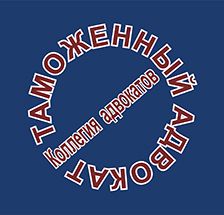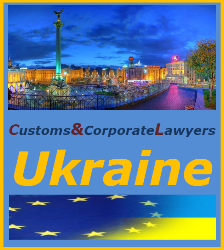International conference on the foreign economic activities issues, investment activities and intellectual property turnover under the WTO and Customs Union conditions
October 16, 2013
In the Camber of Commerce and Industry of the Russian Federation International conference “Topical issues of foreign economic and investment activities, the turnover of the objects of intellectual property under the WTO and the Customs Union” was held.
Vadim Tchubarov, Vice-President of the Chamber of Commerce and industry of the Russian Federation opened the event with his speech.
We summarize the results of the first year of Russia's membership in the WTO, he said. Joining the WTOhas not yet had a significant impact on the economy of the country. Some certain decrease in the economy that has began in the second half of 2012 - is the result of mainly adverse conditions in the global markets and the slowdown in the EU, leading to a decline in Russian exports. Benefits of joining the WTO, Russia also has not yet received.
Moreover, due to the decision made by EU on abolish the tariff preferences from January 2014 on certain types of products, which traditionally was supplied by Russian companies on European market (i.e., highly processed products of aluminum), the import duty have almost doubled, which makes our products almost uncompetitive in this market.
Just over a year left before the establishment of the Eurasian Economic Community (EEC) based on the full term functioning of the Customs Union (CU) and the Common Economic Space (CES). It is planned to provide so-called “four freedoms”: free movement of goods, services, capital and labor.
It is crucial that the EEC will be based on the mutually agreed actions and unified legislation in such key areas for our producers as competition, subsidies, procurement, technical regulation, the activity of natural monopolies subjects, protection of intellectual property, etc.
An important element will be the transition to a common visa and migration policy that will remove the border control at internal borders. Wide opportunities will be opened for business.
Currently, emphasized Vadim Chubarov, it’s not influence of the WTO that’s affecting business, but the impact of decisions taken in the framework of the Customs Union and the Common Economic Space. At that point, the Vice President of CCI of the Russian Federation noted,in order to create the most favorable conditions for entrepreneurship, especially for small and medium-sized businesses,it is needed to carefully work out the legal basis, taking into account the best world experience. Russian Chamber of Commerce and Industry tracks the impact of the processes in the framework of the Customs Union and the Common Economic Spaceon conducting business.
Today the main question is the issue of improving customs legislation and, in particular, preparation of a draft Protocol on Amendments and Additions to the Customs Code of the Customs Union. The process is difficult, the Chamber together with other business associations is trying toexclude fromthe draft protocol some negative amendments proposed by Customs service. Similar work is done by partners of the Chambers of Commerce and Industry of Belarus and Kazakhstan. Russian Chamber is involved in work on resolving the issues of application of the TIR Convention, the Convention on the ATA Carnet and the Convention on the Temporary Importation of the customs territory of the Customs Union.
Russian Chamber of Commerce and Industry considers the development of common principles and mechanisms of proof of the origin of goods from the common Customs Union territory as very important. It is assumed that the appearance of an intergovernmental agreement “On the harmonized system of confirmation of the origin of goods from the common customs territory of the Customs Union in trade with third countries”. This document can then become the basis for the introduction of a Unified certificate of the origin of goods.
No less important is the task of the Russian Chamber of Commerce and Industry to ensure the participation of experts of RCCI’s sectoral committeeson institutional and formalized basis in advisory committees established under the Eurasian Economic Commission on various activities, noted Vadim Chubarov.
The imminent entry of the other member states of the Customs Union in the WTO highlighted the problem of legal regulation of intellectual property rights and the introduction of economic turnover of intellectual property in the new economic environment. The system of legal protection of intellectual property should be as effective both on the territory of members states of the Customs Union and the WTO.In this regard, Vadim Chubarov has stopped at one, as he said, of the main problems arising in connection with the simultaneous operation of the Customs Union and the WTO. Fact is that the entrepreneurs are lacking information about the features of commercialization of intellectual property in the international market. Lacking such knowledge and understanding, it becomes extremely difficult to carry out foreign economic activity.
Being aware of the need to adapt Russian economy to the conditions of the WTO, Russian Chamber of Commerce and Industry for the past ten years have been actively providing information and advice to entrepreneurs on the matters of the protection of the rights of intellectual property, protection of trademarks, the practical application of the results of intellectual activity and their involvement in commercial circulation, noted finally Vadim Chubarov.
Member of the Board (Minister) on trade of Eurasian Economic Commission Andrey Slepnyov spoke about the impact of Russia's commitments taken in the framework of the WTO to a foreign economic activities of Russian business. He cited examples of decisions that are consistent with WTO rules, help Russian industries to develop and resist imports.
He reminded about the introduction up to 2016 of quota on import of combine harvesters into the Customs Union, which should support our manufacturers of agricultural machinery. According to him, there are clear changes in the structure of trade, it is actively developing with the CU counties (up to one and a half times); rate of trade growth with the rest of the world is significantly lower. Trade within the CU is also leading among the CIS countries. One of the reasons for significant decrease of Russian- Ukrainian trade - namely activation of trade within the CU, where there are no duties, customs, paperwork etc. It is much more profitable for business to work, said Andrey Slepnyov .
Director of the Department of Customs law and practice of the Eurasian Economic Commission Dmitry Nekrasov talked about the directions in improvement of the customs legislation of the Customs Union. He noted, in particular, that we are talking about three directions: codification, the maximum reduction of reference rules (there are over 330 references to the national legislation of the Customs Union member states); and finally, improvement of customs legislation of CU itself.
The conference participants examined the various aspects of the issues of improving the legislative practice, judicial procedures and practice in the WTO and Customs Union and the practice of instruments of protection the rights and interests of business at the supranational level; the problems of the risks faced by foreign investment in Russia, and possible ways to prevent those risks; intellectual property issues in the aspect of foreign economic activity.
These and other questions on implementation of the strategic objectives of development of foreign economic activity, as well as an experience and the best practices of Russian and international companies have been in the focus of speeches, discussions and the exchange of views at the conference.
A.Bondar, Public relations and mass media center of Russian Chamber of Commerce and Industry of the Russian Federation

